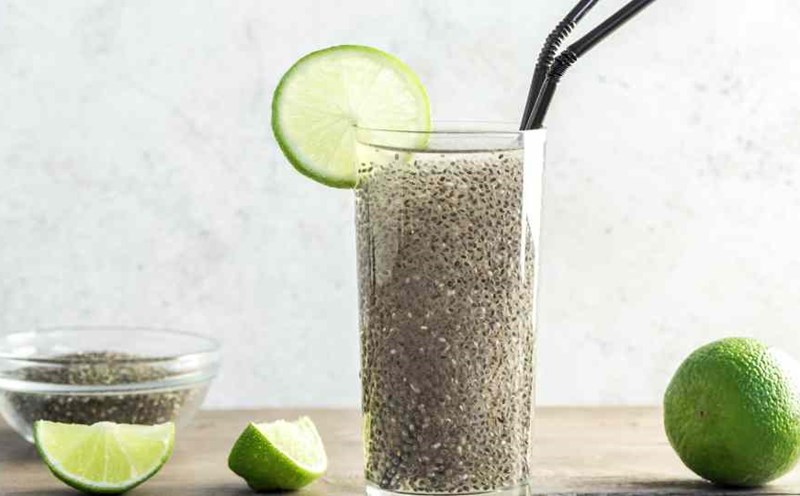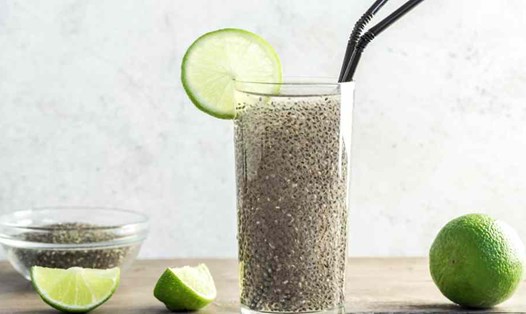Chia seeds are a rich source of essential nutrients such as fiber, plant-based omega-3 fatty acids, protein and many vitamins and minerals. This seed is often added to smoothies, yogurts, or oatmeal. However, if consumed incorrectly, chia seeds can lead to problems such as digestive disorders, bloating, and constipation.
1. Eat in large quantities
If you eat too many chia seeds at the same time (more than 2 tablespoons, equivalent to about 25-30g), you may experience constipation, bloating or abdominal pain due to the high fiber content. For people with a digestive system that is not used to a diet rich in fiber, consuming a large amount of it suddenly will cause discomfort. It is best to start with a small amount, about a teaspoon per meal.
2. Eat right before bed
Although chia seeds provide slow digestive energy and healthy fats, using them right before bed can cause many consequences. The fiber in the seeds significantly slows digestion, leading to a feeling of fullness and heaviness, forcing you to wake up to go to the toilet at night because the gel mass has retained the water. You should eat chia seeds in the morning or for a midday snack to be beneficial for your health.
3. Eat chia seeds in dried form
Consuming chia seeds without soaking them in water can be dangerous. When dried nuts enter the body, they will immediately absorb moisture and expand into the throat or stomach. This not only causes discomfort, but can also lead to the risk of choking or Esophagic blockage. In addition, the outer shell of chia seeds is very tough, dry eating makes it difficult for them to digest, easily leading to bloating and constipation.
4. Regardless of existing medical conditions
People who are taking blood thinners or blood pressure medications should consult a doctor before taking chia seeds. Chia seeds have natural blood thinning properties, which can resonate with anticoagulants that increase the risk of bleeding. In addition, this type of seed also has the ability to lower blood sugar, affecting the effects of diabetes medication.
In addition, people with digestive conditions such as irritable bowel syndrome (IBS) or swallowing disorders may feel uncomfortable due to the high fiber content and bulging properties of the seeds.
Although chia seeds are very good, they are not a complete diet. Combine them with vegetables, fruits, and other protein sources to ensure a balanced diet. Although rare, this seed can still cause allergies in some people with symptoms such as itching, swelling or difficulty breathing. If there are any unusual signs, stop using them and see a doctor immediately.











